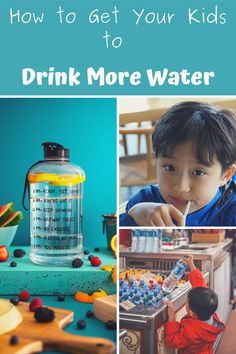Introduction:
The importance of hydration cannot be overstated, especially when it comes to ensuring the proper development and well-being of children. Recent studies have indicated that a significant number of students may not be consuming enough water throughout the day. Schools are now being urged to take more proactive steps in encouraging children to drink more water for their health and success.
Importance of Hydration in Children:
A lack of proper hydration can lead to a myriad of problems for children, including reduced cognitive function, poor concentration, and even physical health issues like headaches and fatigue. Ensuring that children consume adequate amounts of water throughout the day can improve their overall well-being, academic performance, and participation in extracurricular activities.
Current Situation in Schools:
Despite the clear benefits of proper hydration, many schools fall short in providing students with easy access to drinking water or promoting its consumption. Budget constraints may lead to a lack of clean drinking fountains, insufficient refilling stations, or limited availability during lunch and recess periods. Additionally, some schools may rely heavily on vending machines that offer sugar-laden sodas and juices as alternatives to water.
How Schools Can Encourage Water Consumption:
1.Increase accessibility: Install more water fountains or bottle refill stations around the campus, ensuring they are clean and functional at all times. Schools can also increase the availability of water during lunch periods and breaks so students have ample opportunity for hydration.
2.Offer education: Incorporate lessons about the benefits of proper hydration into health-related curriculums or school assemblies. By providing resources and information about the necessity of keeping hydrated, children will be more likely to make a conscious effort to drink plenty of water.
3.Make it fun: Schools can make drinking water more appealing by organizing school-wide hydrations challenges with rewards for participation or achievements. A competitive yet inclusive setting will inspire students to take part in healthy habits.
4.Choose healthier options: Substitute unhealthy beverages in vending machines with water, milk, or natural fruit juices. Give students healthier alternatives and promoting water as the primary choice for a refreshing drink.
5.Encourage reusable bottles: Encourage students to bring reusable water bottles from home. Offer displays on bulletin boards showing the benefits of using such bottles and reducing plastic waste in the environment.
Conclusion:
As schools are urged to help children drink more water, it is important for administrations, teachers, and parents to work together to create an environment that emphasizes proper hydration. By making access to clean drinking water more convenient and heightening awareness around its benefits, children can develop a healthy habit of staying hydrated throughout their lives, leading to academic success and overall well-being.





